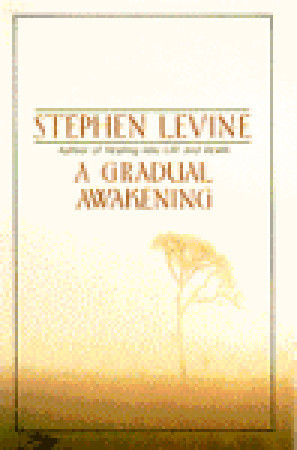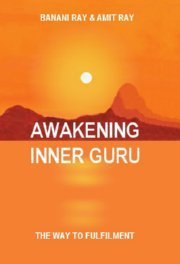
A Gradual Awakening
Book Description
Amidst the chaos of a world that feels increasingly disconnected, a journey of profound self-discovery awaits. "A Gradual Awakening" invites you into the heart of human experience, where love and loss collide in moments of raw honesty and vulnerability. As the protagonist grapples with the fleeting nature of life, every page turns like an unfolding dream—filled with rich insights, stirring revelations, and the fiery quest for authenticity. Deep emotions stir and relationships entwine, pushing the boundaries of what it means to truly awaken. What revelations lie just beyond the horizon of self-acceptance?
Quick Book Summary
"A Gradual Awakening" by Stephen Levine is a thoughtful exploration of the inward journey toward mindfulness and spiritual awakening. Drawing from Buddhist meditation practices and his own insights, Levine guides readers through the process of cultivating consciousness in everyday life. He delves into the impermanent nature of existence, encouraging readers to face suffering, attachment, and fear with compassionate awareness. The book details practical meditative techniques and contemplative exercises, fostering an atmosphere of gentle inquiry rather than dogma. Levine's reflective prose helps to unravel the patterns that bind us, revealing deeper layers of love and connection. Through vulnerability and profound honesty, "A Gradual Awakening" offers readers both a path and a companion for the ongoing quest toward acceptance, healing, and genuine self-discovery.
Summary of Key Ideas
Table of Contents
Mindfulness as a Path to Awareness
Levine introduces the transformative power of mindfulness, situating it not as a distant ideal but as an ongoing practice intertwined with moments of ordinary life. He explores how returning attention to the present—whether through the breath, physical sensations, or challenging emotions—can dissolve habitual patterns that obscure clarity and joy. Central to his teaching is the idea that awareness itself is inherently healing, and that with patience and gentleness, anyone can cultivate this capacity regardless of prior experience.
The Nature of Suffering and Impermanence
Building on mindfulness, Levine turns to the Buddhist understanding of suffering and impermanence. He encourages readers to lean into discomfort and recognize suffering as a universal aspect of the human condition. Instead of denying pain or seeking quick escapes, Levine advocates for a compassionate presence that allows suffering to reveal its deeper teachings. In recognizing the transitory nature of thoughts, feelings, and experiences, individuals can find freedom from the fear and clinging that perpetuate distress.
Compassionate Self-Observation
Self-observation is presented as an act of loving inquiry rather than critical scrutiny. Levine suggests that true growth comes from looking inward with warmth and curiosity, softening the harsh inner voice that often judges or suppresses emotions. Through various exercises in self-reflection and meditation, he illustrates how people can develop a nonjudgmental relationship with themselves. This compassionate observation gently erodes barriers to insight and fosters a deeper acceptance of both strengths and frailties.
Letting Go and Non-Attachment
Levine discusses the importance of letting go and cultivating non-attachment. Attachment to self-images, roles, and material or emotional certainties acts as a barrier to awakening. By practicing non-attachment, individuals become more responsive to life’s ebb and flow, able to face change and loss with equanimity. He explains that letting go isn’t passive resignation but an active process, as it involves a willingness to release what no longer serves growth and authenticity.
Awakening through Vulnerability and Love
The book culminates in an exploration of awakening as both a process and a practice of deep love and vulnerability. Levine views authentic spiritual awakening as inseparable from a growing capacity to open the heart, embrace uncertainty, and relate to others with empathy. The journey described is gradual, filled with moments of revelation and setbacks alike, yet always pointed toward greater integration and wholeness. Ultimately, Levine encourages readers to trust their unfolding path, finding meaning through honest encounter with themselves and the world.
Download This Summary
Get a free PDF of this summary instantly — no email required.





